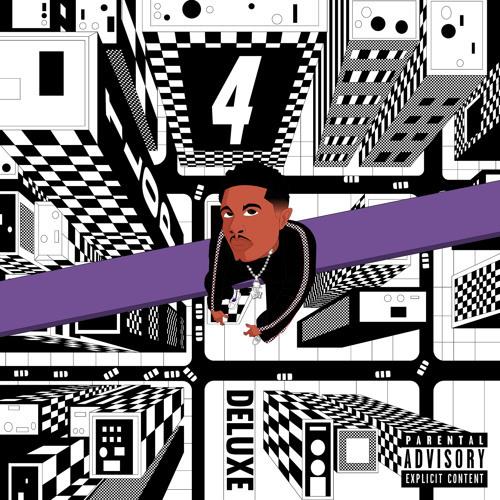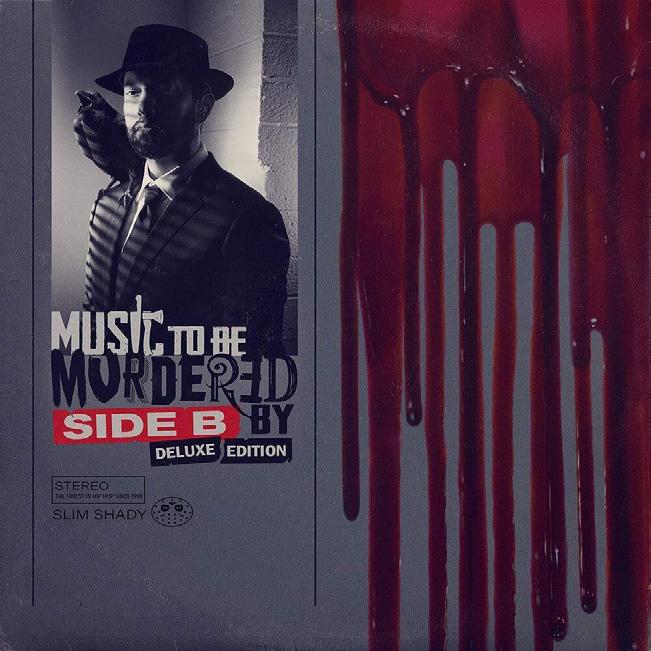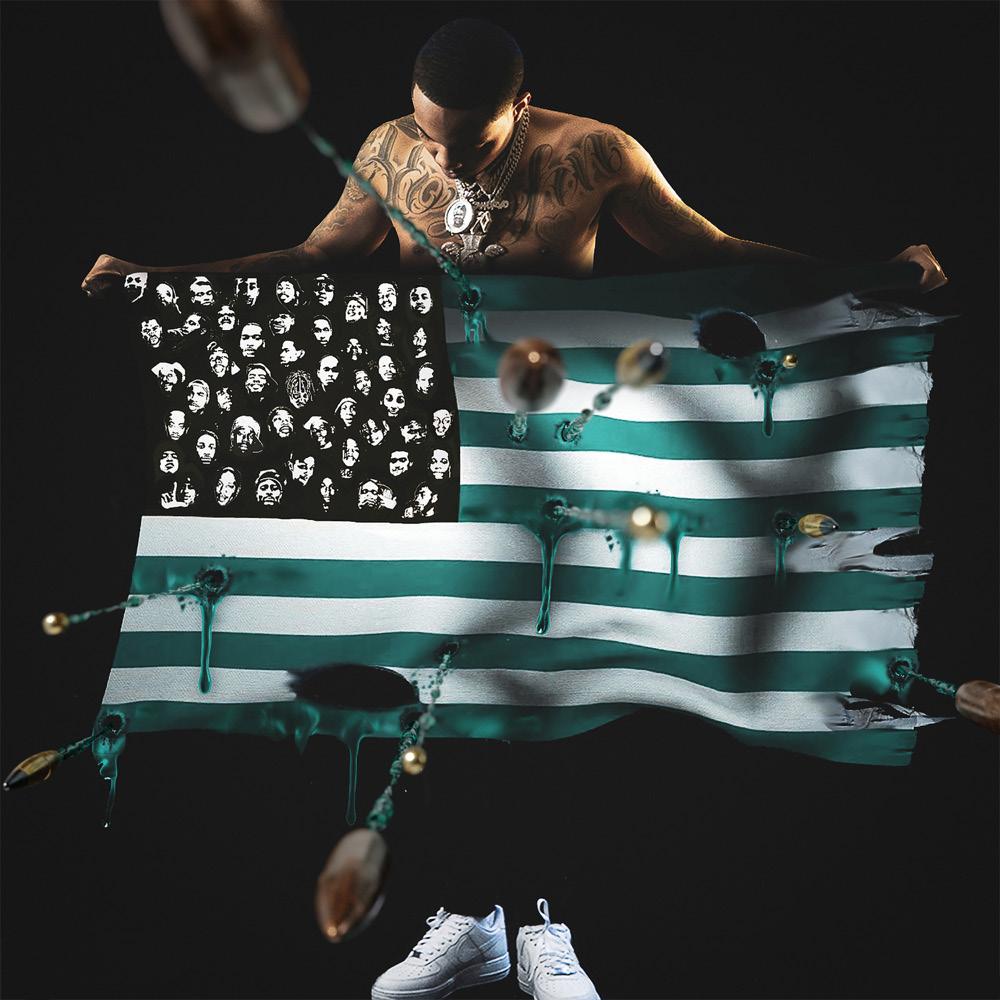
7 minute read
The Rise of Deluxe Albums in Rap
from Melisma Winter 2020
The Future of Music Releases
Deluxe Double Albums and Their Impact on the Industry
Advertisement

by Andres Lopez
Deluxe albums are nothing new in the world of rap, or for that matter, the music world in general. Since the heyday of the CD, artists have boosted sales by adding a handful of bonus songs to the end of their albums on an updated release of the album. This made a lot of sense back then, since this strategy did not require much effort from the artist. They could essentially put out a few b-sides or throwaways and sit back and watch as superfans bought a second CD. Attention to their album inevitably went up again, and they stayed on the charts for longer. Deluxe albums in this style still exist, but there has been an emerging trend in the rap scene specifically when it comes to double albums: the deluxe double album. Does this new formula for deluxe albums make sense in the streaming era, though? Lil Uzi Vert notably began this trend when he released an entire album worth of material as a deluxe addition to his long-awaited album, Eternal Atake. The deluxe edition, Lil Uzi Vert vs. The World 2 was released just one week after Eternal Atake. This was certainly an interesting strategy, as most deluxe editions of albums historically have been released well after the original, or released alongside the original. This strategy helped Uzi keep the public’s eyes on his album(s), which in turn maintained his number one spot on top of the Billboard 200. Since a deluxe album and its regular version are considered the same album for the purpose of sales, Eternal Atake was on top of the charts for two weeks instead of just one. After Uzi saw so much success with Eternal Atake/Lil Uzi Vert vs. The World 2, many other high-profile rap artists such as DaBaby, G Herbo, Nav, Pi’erre Bourne, Lil Baby, Gunna, Eminem, the late Pop Smoke, and more released deluxe editions of their albums. Some just about doubled the length of their album while others added just over 20 minutes of material, but it is important to note the actions of all of these artists. In an interview with Complex Magazine, Don Cannon, a producer who worked on Lil Uzi Vert vs. The World 2, said that “Uzi started the deluxe [trend]. It’s like he’s doing a whole other wave of visionary shit.” What explains this sudden tendency to quickly release a full album as a deluxe album? First, with the COVID-19 pandemic affecting not only the music industry, but the world, artists need more income due to being physically unable to go on tour, although virtual concerts are starting to become more popular. Second, artists are always looking for increased attention and want to excite and surprise their fanbases. Releasing two albums of music is bound to keep the core fanbase of the artist satisfied while intriguing new listeners to give them a shot. Third, releasing an extra album will help artists catch the eye of the public. This is especially important in the era of streaming, since the market is oversaturated with new music and people have extremely short attention spans. For example, in 2020 alone, Youngboy Never Broke Again released six full-length projects, ranging from solo studio albums and mixtapes to compilation albums and collaborative mixtapes. His frequent releases have garnered him considerable attention. In a world where artists generally wait a year or more to release a new album, this could signal the arrival of a new wave in how often artists release music. Lastly, as previously mentioned, the deluxe album is tied to the original, which keeps the album on the charts, increases the number of firstweek sales, boosts overall sales, and increases the amount of money in the artist’s and label’s respective bank accounts.
What does this mean for the rap scene and the music industry at large, though? We can definitely expect more deluxe double albums in the future, but will this new trend become more popular than releasing albums with bloated tracklists like Migos’ Culture II? Will it become more popular than releasing a double album like Drake’s Scorpion? Many critics have noted that these albums do not have nearly enough good songs to warrant their runtime. Perhaps they would have been received better if they were split up into two distinct albums. Even though said approach would probably sit better with fans, it would just saturate the music industry even more than it already is in terms of the
sheer number of albums out there, which raises some concerns. However, it seems like this new deluxe formula is here to stay, even after the pandemic ends. For example, in addition to the plethora of deluxe rap albums released after Eternal Atake, Jhené Aiko, a prominent R&B artist, released a deluxe double album for her album Chilombo. The original version released on March 6th, 2020 and debuted at #2 on the Billboard 200 and sold 152,000 album-equivalent units that week. The deluxe released on July 17th, 2020 and slingshot her album from #43 to #6, netting her around 52,000 album-equivalent units. Chilombo made the greatest jump on the charts that week and proved that a deluxe album brings considerable attention to both the new album and the original. Despite the benefit to the artists, this trend is a little worrisome because it incentivises artists to mindlessly pump out music for the sake of making money and racking up streams. This is already something that has been happening, as shown by the aforementioned Culture II and Scorpion. Generally, long albums and double albums are an artistic statement, but it is really easy to tell that Migos and Drake were in it for the money with those albums, as they have a lot of filler songs meant to increase streams. Drake has said that his next studio album will be “more concise” than Scorpion, noting the reception of said album.

With the deluxe double albums though, most of the time it is hard to tell whether the songs were new or b-sides that were not included in the original. Quite a few of the tracks that ended up on Lil Uzi Vert vs. The World 2 had been teased on Instagram live streams for a quite a long time, while other songs seemed newer. It remains a mystery whether Uzi spontaneously released the deluxe edition to please fans that were irritated with the omission of said teased songs or not. I do commend him for the cover art and naming it the way he did, as the original Lil Uzi Vert vs. The World is one of his most popular albums. Treating the album like a sequel was smart, but I think that instead of feeling like a true sequel, it felt like a slightly underhanded way to boost Eternal Atake. Instead of being its own artistic statement and entity, it became an accessory to another project. Thus, this trend allows artists to not have to create a brand new concept or aesthetic for the new deluxe album since people will think of it as an extension of the first album. In sum, the age of streaming has brought upon us new ways in which artists market and profit off of their work. Ever since Lil Uzi Vert started the deluxe double album trend back in March of 2020, the rap game changed for the foreseeable future. The trend even spread outside of rap. R&B artist Jhené Aiko released a deluxe double album and saw considerable success in said endeavor. With a slew of deluxe double albums dropping throughout 2020, artists found themselves staying in the limelight for longer than usual and bringing in extra cash. The deluxe double album formula also keeps fans satisfied given the fact that artists cannot go on tour because of the pandemic. Regardless of the advantages this new marketing strategy gives artists, I fear that the deluxe double album trend is the next version of the strategy to finesse streams, as deluxe double albums present the opportunity to put a lot of filler tracks on an album, sit back, and watch the money pile up. However, only time will tell if this will negatively affect the music industry and the overall quality of music we consume.













